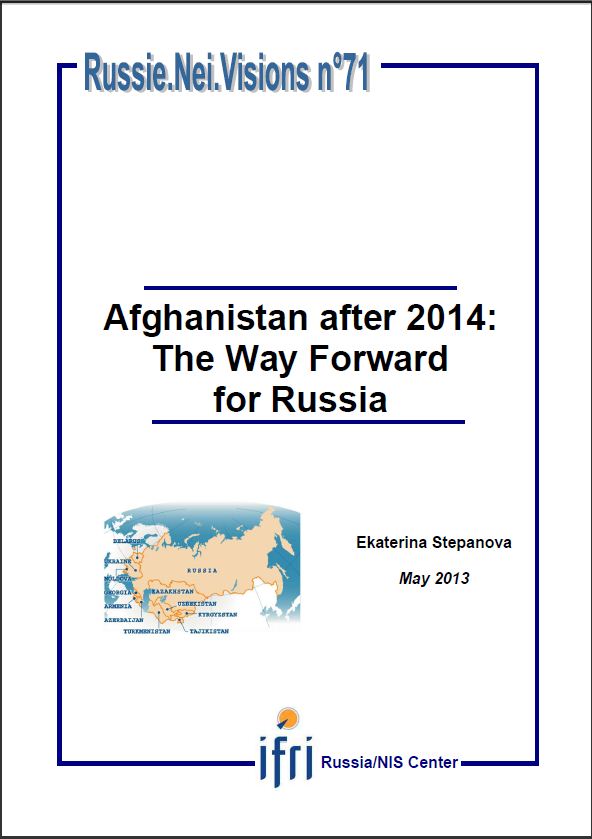Afghanistan after 2014: The Way Forward for Russia

It may appear that Russia is equally dissatisfied with both Western security’s presence in and its departure from Afghanistan planned for 2014, but whether the Western withdrawal is seen as more of a gain a loss depends on how Moscow itself assesses and balances its own security concerns in the region: instability, extremism and narcotics.
At the same time the spill-over of violence and extremism does not pose a direct threat to Russia itself for whom the main implications of U.S./NATO withdrawal from Afghanistan are in Central Asia. Moscow’s main strategy to address potential cross-border repercussions for its Central Asian allies and the increase in Western back-up and transit-related presence in Central Asia is to intensify security and economic cooperation with Russia’s CSTO partners in the region. This will be coupled with keeping a certain distance from Afghanistan, despite the large scale challenge posed by the inflow of Afghan heroin—the most direct Afghanistan-related security concern for Russia. Regarding drug control and counternarcotics in particular, Russia will have to rely on whatever government will be in place in Afghanistan. This explains Moscow’s genuine interest in increasing functionality and legitimacy of the Afghan state, which can only be achieved through an intra-Afghan political process and power-sharing arrangement.
Download the full analysis
This page contains only a summary of our work. If you would like to have access to all the information from our research on the subject, you can download the full version in PDF format.
Afghanistan after 2014: The Way Forward for Russia
Related centers and programs
Discover our other research centers and programsFind out more
Discover all our analysesDeathonomics: The Social, Political, and Economic Costs of War in Russia
The report attempts to outline and examine a truly new phenomenon in Russian society, dubbed “deathonomics”—the making of a mercenary army against the backdrop of the Kremlin’s war in Ukraine, eventually replacing both the Soviet (conscript) and early new Russian (contract) armies. It notes that, by the end of 2023, this trend had turned the military service into one of the highest-paying professions in the country, something not seen in Russia on such a scale since the late 17th century.
Russia's Asia Strategy: Bolstering the Eagle's Eastern Wing
Among Russia’s strategic priorities, Asia traditionally played a secondary role compared to the West. In the mid-1990s, then Foreign Minister Yevgeny Primakov initiated a rapprochement with China and India. Then, in 2014, deteriorating relations between Russia and the West prompted Moscow to begin its “great pivot to the East”.
Kazakhstan After the Double Shock of 2022: Political, Economic and Military Consequences
The year 2022 represented a dual shock for Kazakhstan. In January, the country faced its most severe political crisis since independence, followed in February by Russia’s full-scale invasion of Ukraine, which cast uncertainty over the borders of post-Soviet states. These consecutive crises profoundly shaped Kazakhstan’s domestic and foreign policy.

How the Russian Army Changed its Concept of War, 1993-2022
The traditional and high-intensity war that has occurred in Ukraine since Russia decided to invade raises a key issue: did post-soviet Russian strategic thought really prepare Russia for waging this war?










